
Polycarp (approximately AD 69–155) was an early Christian bishop of Smyrna. According to historical accounts, he was martyred through a combination of burning and stabbing, after enduring persecution. He is recognised as a saint and a Church Father across multiple Christian traditions, including the Eastern Orthodox Church, the Catholic Church, Oriental Orthodox Churches, Lutheranism, and Anglicanism.
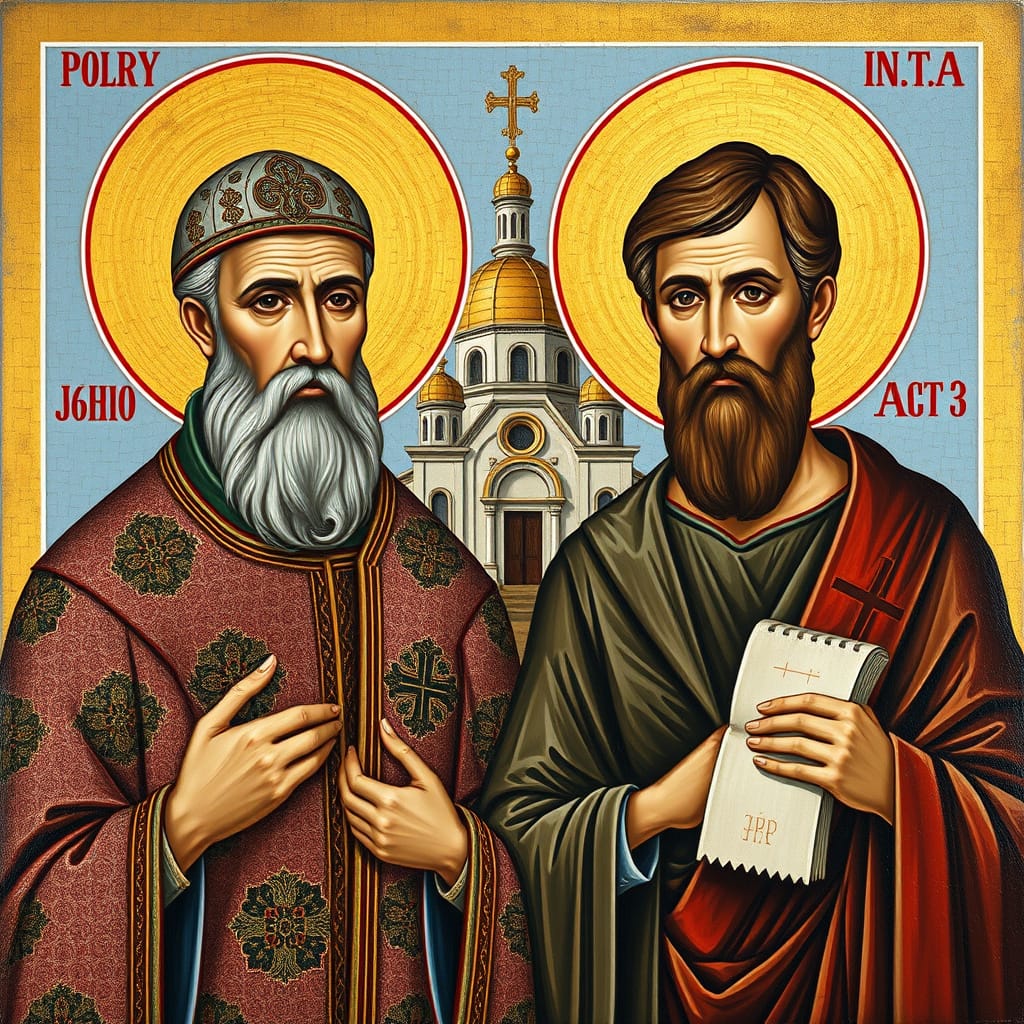
According to historical accounts by Irenaeus and Tertullian, Polycarp was a follower of John the Apostle, one of the disciples of Jesus Christ. In his work On Illustrious Men, St Jerome also mentions that Polycarp was a disciple of John the Apostle, who appointed him as the Bishop of Smyrna. Polycarp is widely acknowledged as one of the three primary Apostolic Fathers, alongside Clement of Rome and Ignatius of Antioch.
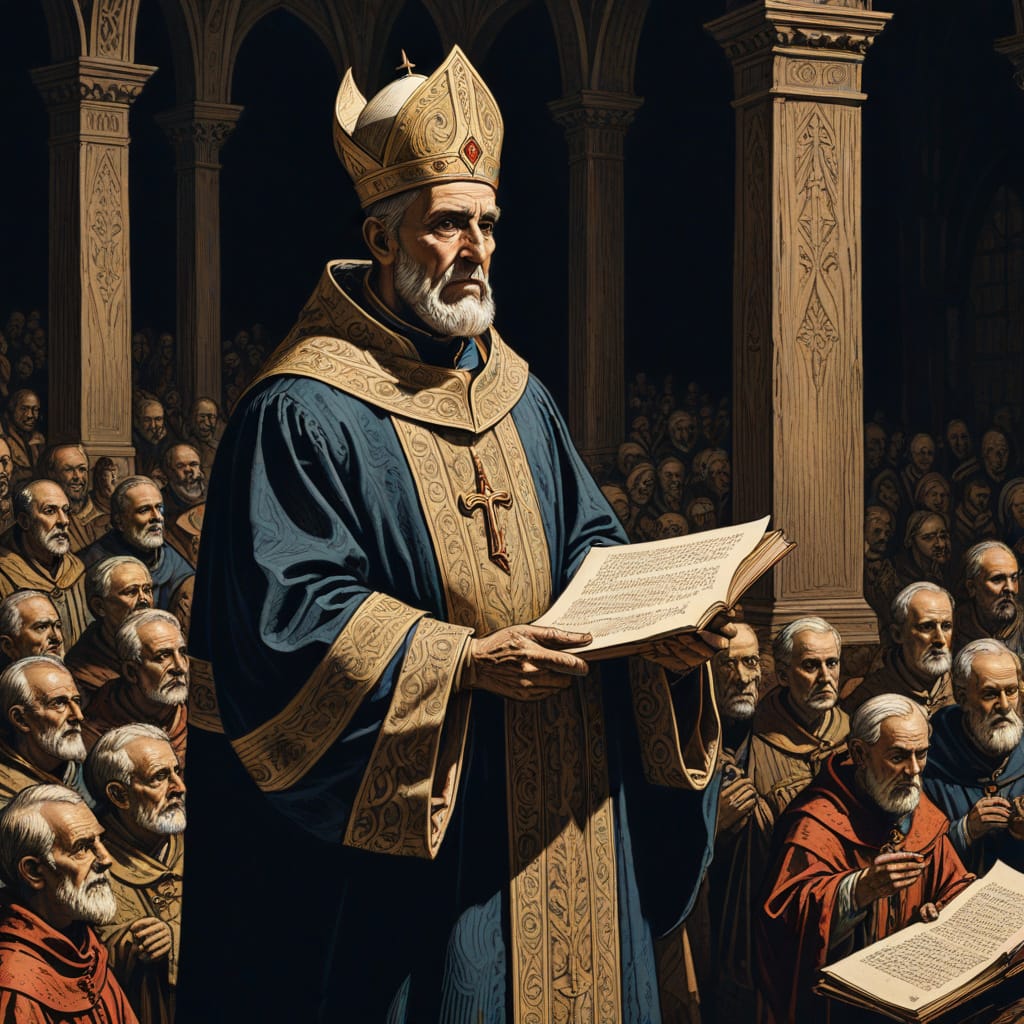
The only extant work attributed to him is the Epistle of Polycarp to the Philippians, which contains numerous references to the Septuagint. (A Greek translation of the Hebrew Scriptures commonly referred to as the Old Testament), including the Apocryphal books, produced for Greek-speaking Jewish communities in Egypt during the 3rd and 2nd centuries BCE and subsequently embraced by early Christian congregations. This epistle, along with an account of Polycarp’s martyrdom, is included in the collection of writings known as the Apostolic Fathers.
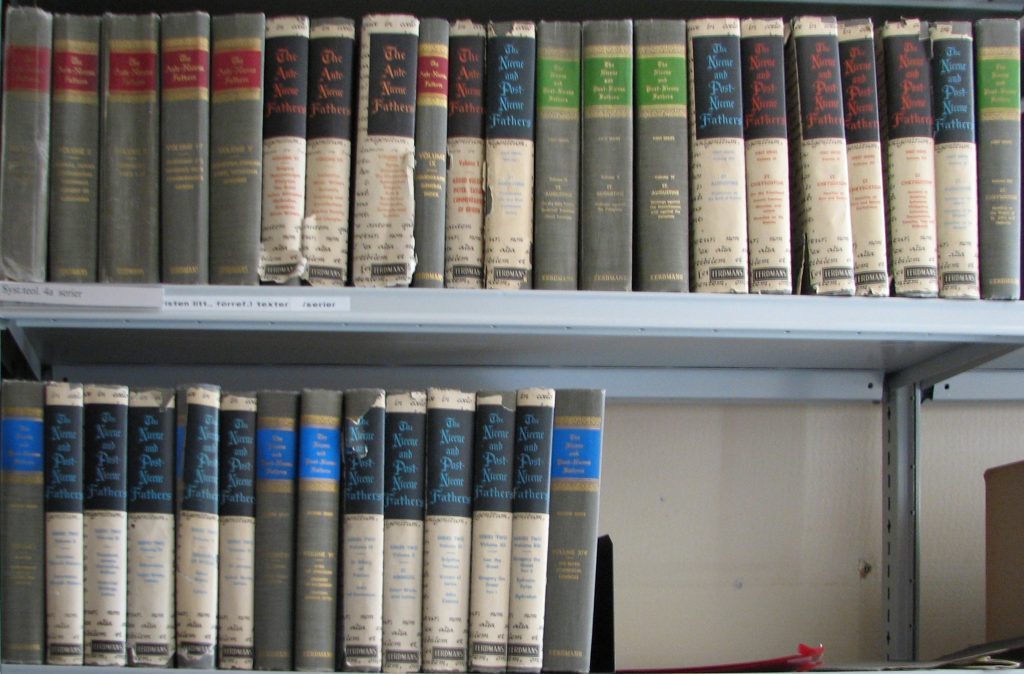
All or most of these works were originally written in Greek. Older English translations of these works can be found online in the Ante-Nicene Fathers series on the Christian Classics Ethereal Library website. The Select Library of the Nicene and Post-Nicene Fathers of the Christian Church, commonly referred to as the Nicene and Post-Nicene Fathers (NPNF), is a collection of published volumes comprising English translations of early Christian texts. The compilation was issued over the period from 1886 to 1900.
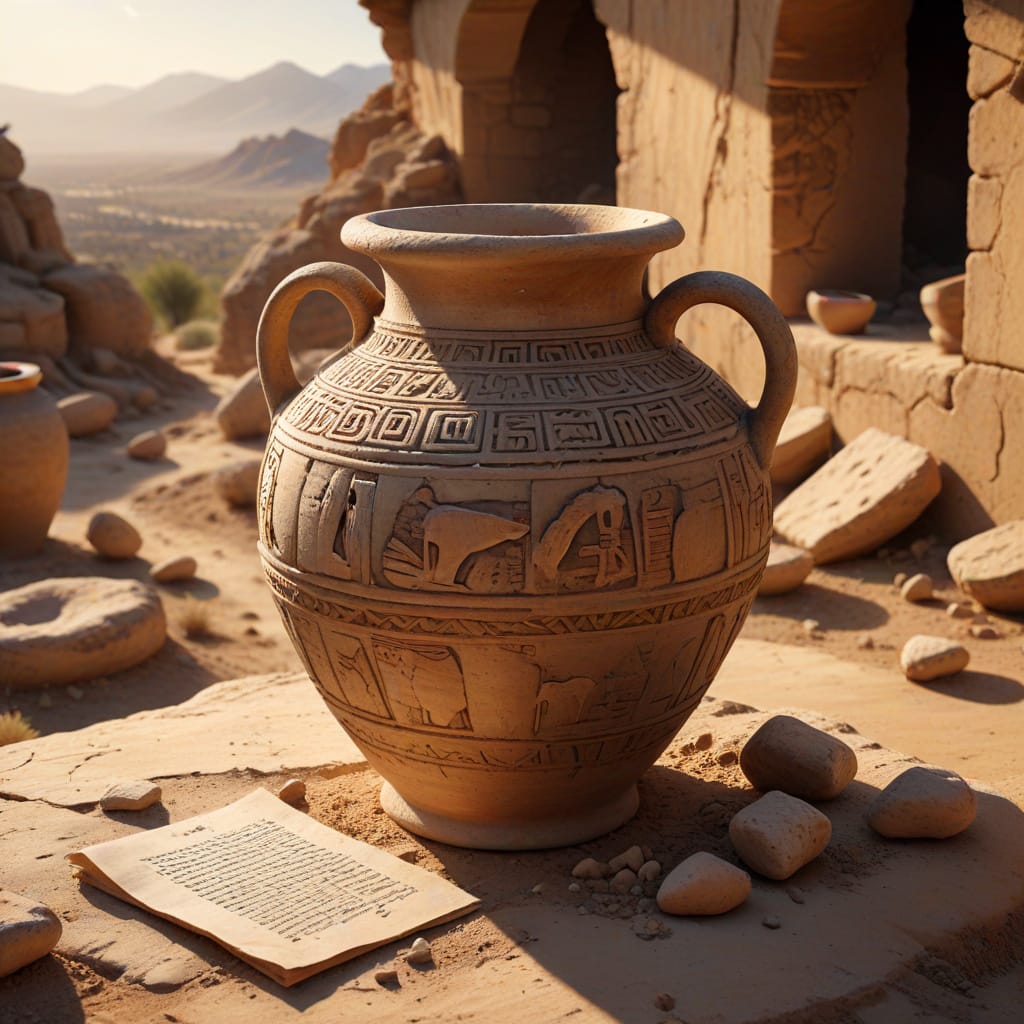
An epistolary account that describes the religious martyrdom of Polycarp, Bishop of Smyrna during the 2nd century AD. This document is recognized as the earliest extant account of Christian martyrdom outside of the New Testament scriptures. Although the author remains anonymous, it is generally attributed to members of the early Christian theologian community known as the Church Fathers. The letter was dispatched from the Christian community in Smyrna to another congregation in Phrygia, specifically in Philomelium
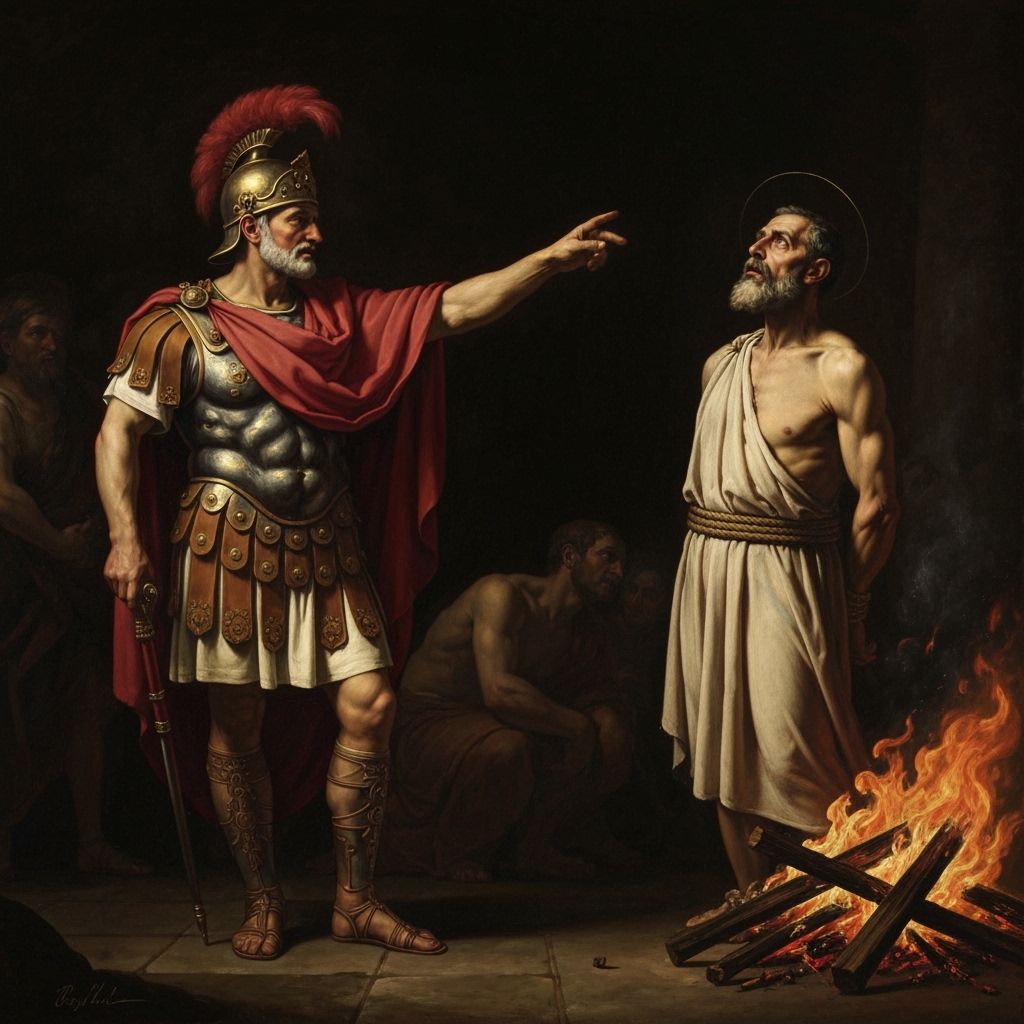
It includes a combination of eyewitness testimony and narrative recounting, detailing the arrest of Polycarp, the Roman authorities’ attempt to execute him by burning, and the occurrence of miraculous events associated with his martyrdom.
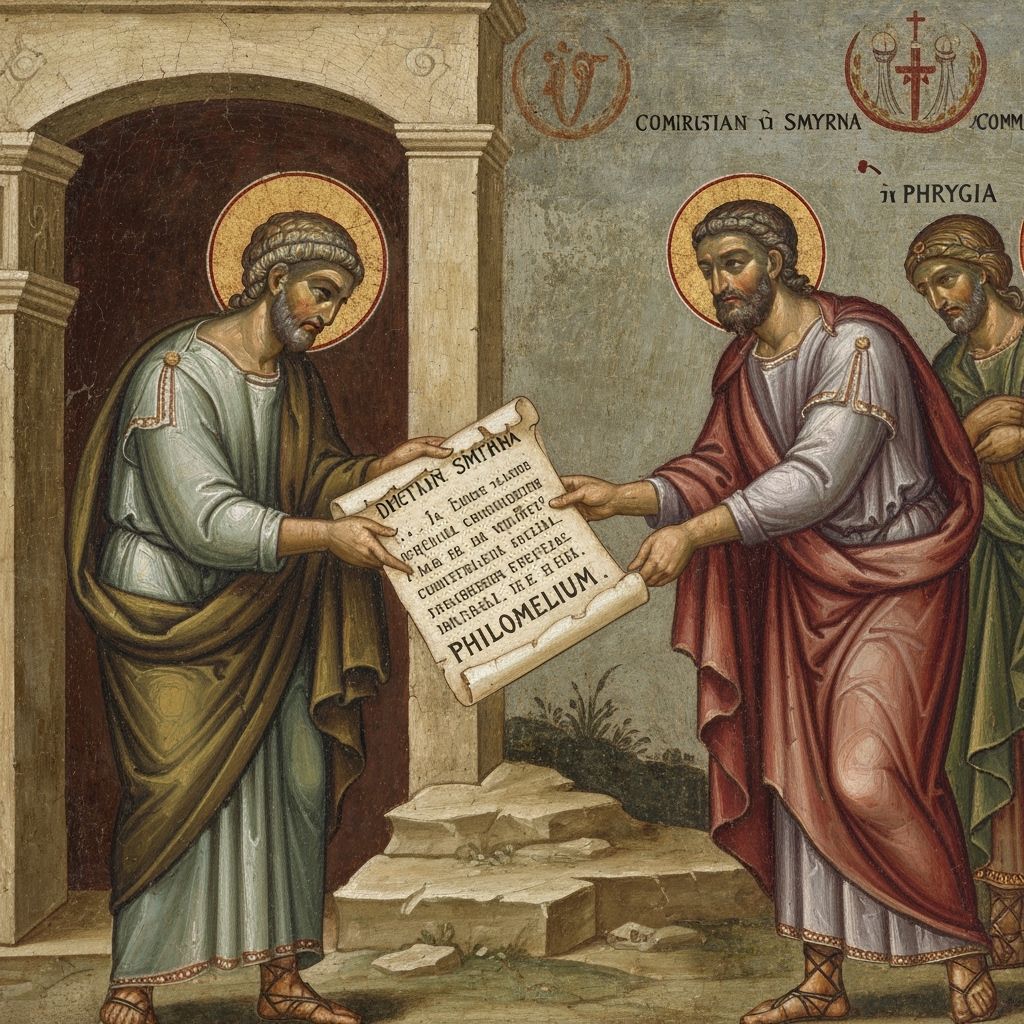
The content of the letter reflects influences from both Jewish martyrdom literature found in the Old Testament and the narratives of the Gospels. Additionally, the Martyrdom of Polycarp articulates a theological perspective on martyrdom, outlining principles regarding the appropriate conduct and spiritual significance of those who face persecution for their faith.
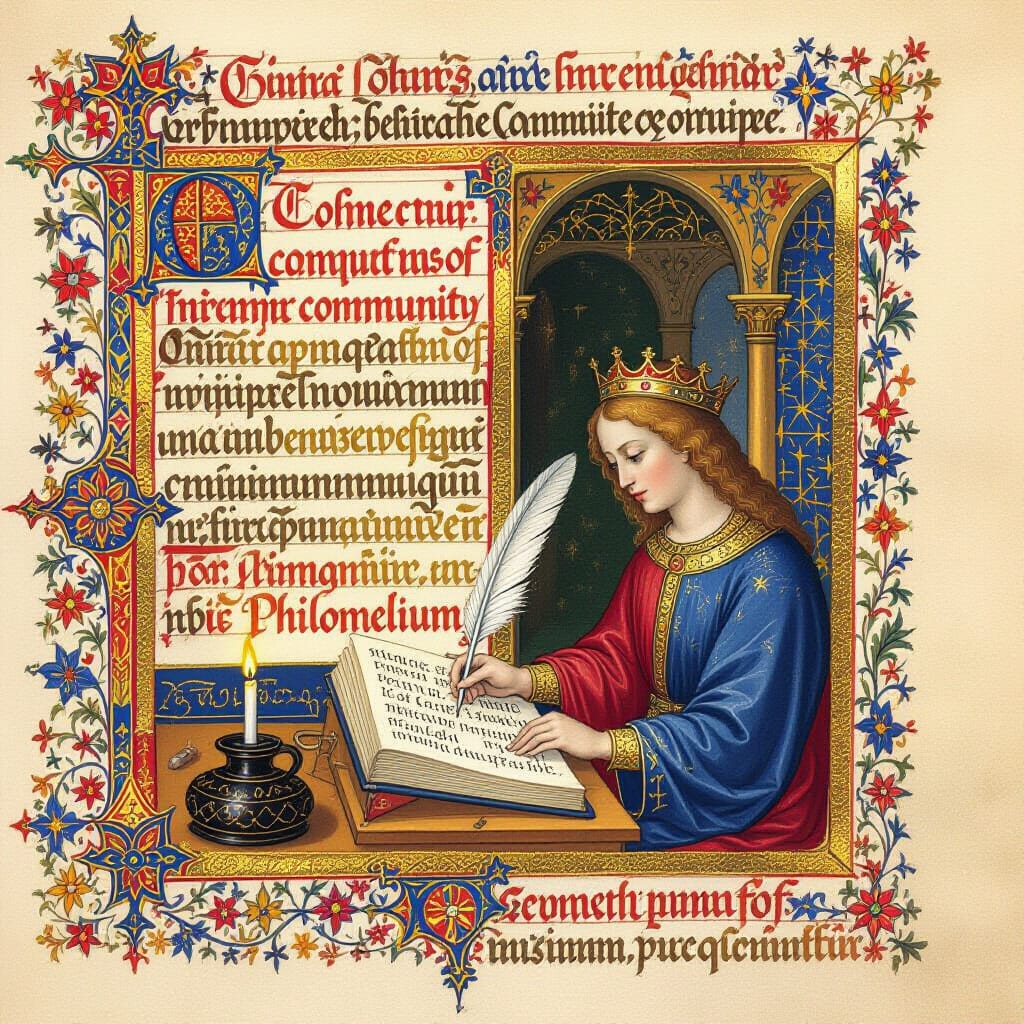
The author discusses the concept of steadfast dedication to one’s principles and criticises an individual who, instead of demonstrating unwavering commitment, chose to make offerings to Roman deities in order to preserve their personal safety.
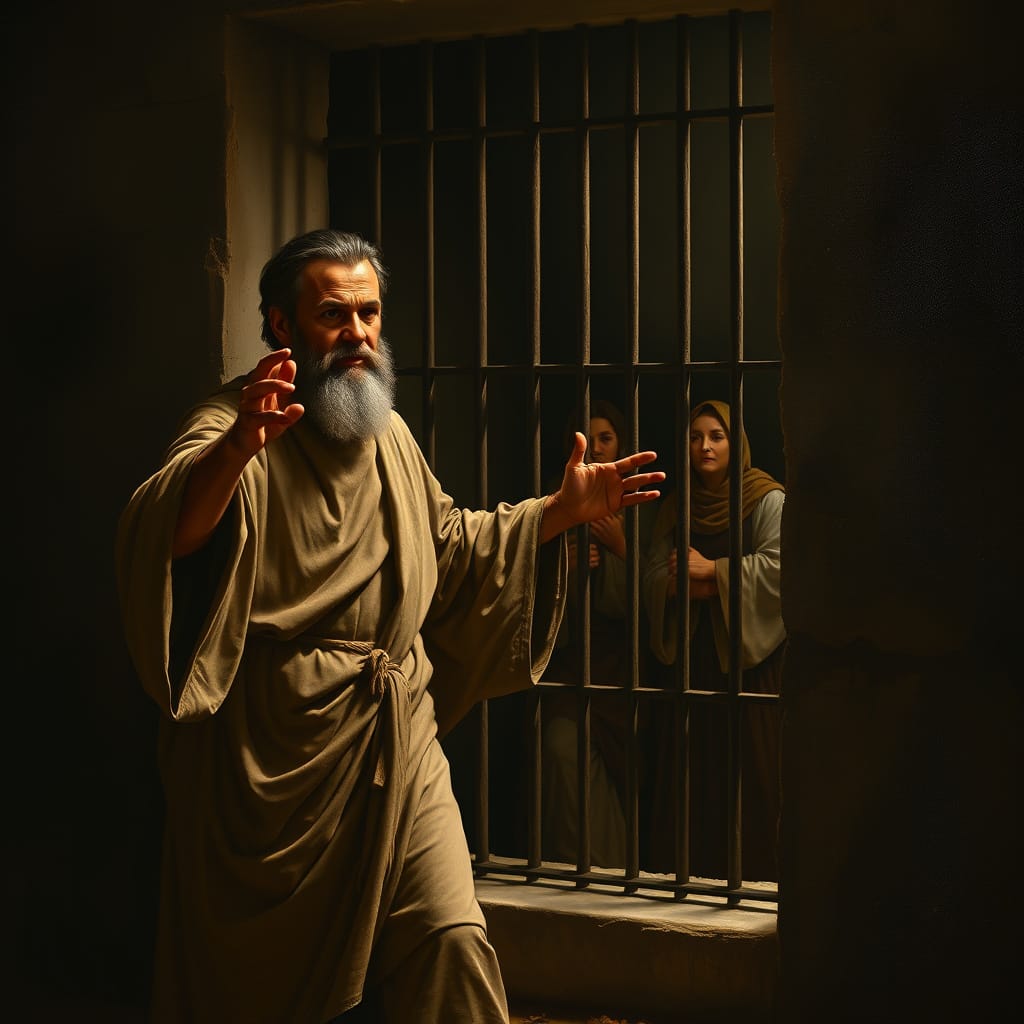
The narrative describes Polycarp, who, in retirement at an advanced age of 86, experiences a visionary message that prompts him to prepare for a sacrificial act. Similar to religious figures in history, there is a moment of treachery to authorities, during which Polycarp steps forward to facilitate the release of two associates. .
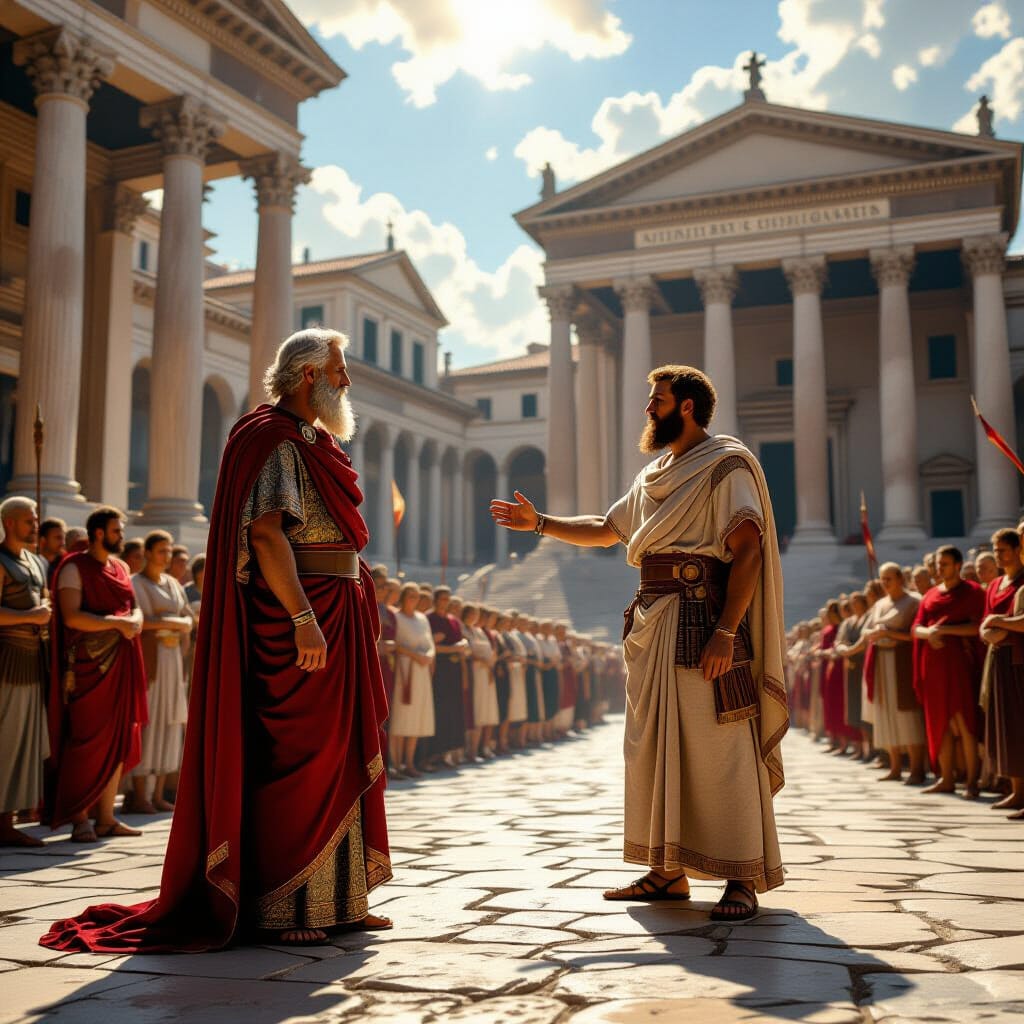
He is subsequently brought to a public venue in Smyrna and is asked to swear publically allegiance to Caesar Antonius Pius to acknowledge the emperor’s divine status. Polycarp declines this request. Polycarp was accused of being a leader of the Christian community. The people demanded that Polycarp be burned to death for refusing to deny his faith and blaspheme Jesus. Efforts are made to carry out the execution by burning him.
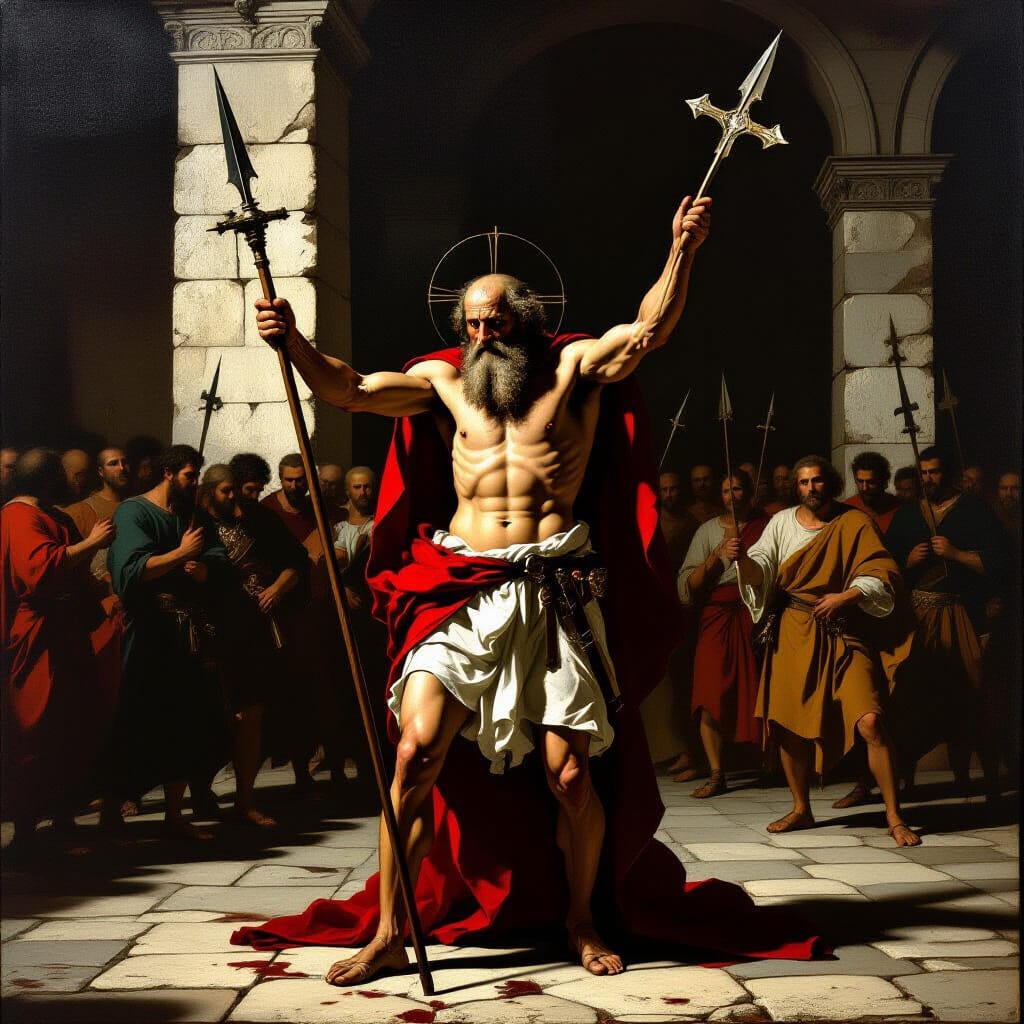
Miraculously, the flames appear to form a protective barrier around him, resulting in him emitting a radiant glow. Ultimately, he is pierced with a spear, leading to his death and the extinguishing of the fire.
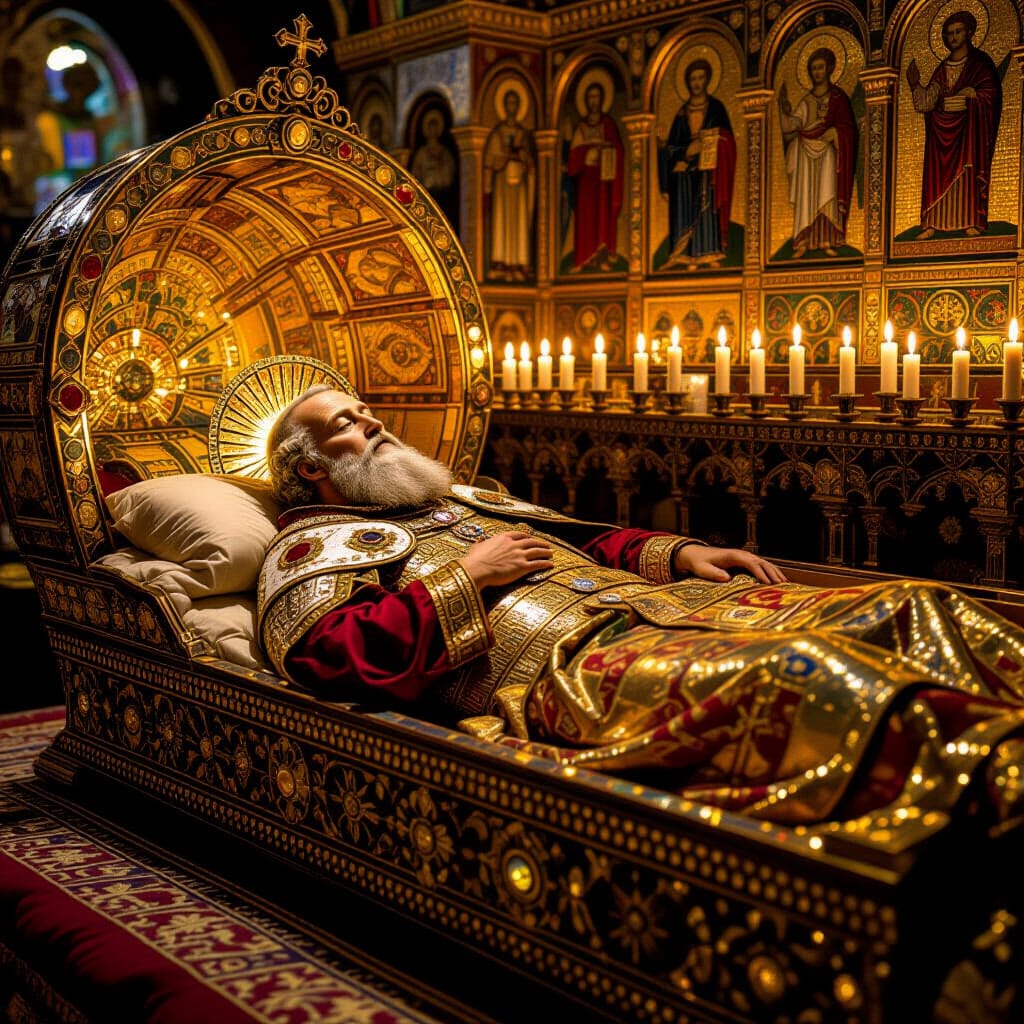
Following this, local authorities requesterd the disposal of his remains to prevent them from becoming objects of veneration. However his followers carefully collected his uninjured remains, venerating them as significant relics and honouring his memory through their preservation. The author concludes by extolling the virtues of Polycarp and other individuals who demonstrate unwavering commitment to their beliefs.
Polycarp Of Smyrna’s Theology
A Greek translation of Polycarp’s theological framework emphasises the historical person of Jesus Christ, notably His incarnation, crucifixion, and physical resurrection—elements central to Christian hope for future renewal. Polycarp vehemently opposed heresies such as Docetism and Gnosticism, affirming that the denial of Jesus’s bodily coming makes one an antichrist. He prioritised faith, love, and moral integrity as foundational to Christian life and the church’s testimony, while also underscoring the significance of maintaining apostolic tradition and Scripture.
Key Aspects of Polycarp’s Theology
Christology (The Person of Christ)
- Incarnation: Polycarp affirmed that Jesus Christ was truly incarnated as a human being, refuting heresies that claimed Christ only appeared to be human.
- Authentic Humanity: He steadfastly believed that Jesus “came in the flesh,” considering denial of this truth as a sign of antichrist.
- Atonement: Polycarp taught that Jesus endured suffering for humanity’s sins and was raised by God after His death, conquering death and Hades.
Eschatology (The Study of Last Things)
- Bodily Resurrection: He highlighted that the core Christian hope involves the resurrection of the body, mirroring Christ’s resurrection.
- Final Judgment: Polycarp warned of a coming eternal judgment for the unrighteous, contrasting with the temporary nature of earthly trials like his own martyrdom.
Ecclesiology (The Nature of the Church)
- Maintaining Apostolic Tradition: Polycarp regarded his role as one of preserving and transmitting the teachings of the apostles, emphasising doctrinal fidelity.
- Church Unity and Witness: He believed that correct doctrine and righteous conduct are essential for the unity of the church and its effective witness to the world.
Ethical Theology
- Faith, Hope, and Love: Polycarp encouraged believers to cultivate these virtues in their relationship with God and others, as reflected in his Epistle to the Philippians.
- Moral Conduct: He urged Christians to live with integrity, demonstrating purity, honesty, compassion, and patience—reflecting God’s glory and strengthening the church’s reputation.
Additionally, the Bible (including the Old Testament and the Apocrypha)—originally composed for Greek-speaking Jewish communities in Egypt during the 3rd and 2nd centuries BC—was recognised and adopted by early Christian communities as authoritative Scripture.
The Legacy of Polycarp Of Smyrna
Polycarp’s significance lies in his role as a direct link to the apostles, exemplifying faithfulness and perseverance amid adversity, and serving as a foundational figure in preserving and transmitting apostolic teachings to the early Christian community. As a disciple of the Apostle John and bishop of Smyrna, his life and contributions provided a model of steadfast commitment to Christian principles that influenced subsequent church leaders, including Irenaeus.
A Pedagogical Connection to the Apostolic Tradition
- Apostolic Succession:
Polycarp was a disciple of the Apostle John and served as an elder in the early Christian community in Smyrna, thereby establishing a direct spiritual and doctrinal connection between the second-century church and the apostles. - Transmission of Apostolic Testimonies:
He played a vital role in transmitting firsthand accounts of Jesus Christ and the experiences of the apostles to the early church, safeguarding the integrity of apostolic witness.
Demonstration of Exemplary Faith and Commitment
- Exemplary Discipleship:
Polycarp is recognised for his unwavering dedication to his faith, even in the face of persecution and death. - Witness Through Suffering:
His martyrdom was viewed as a profound testament to his devotion and was seen as participating in Christ’s suffering, reinforcing the importance of faithfulness as a form of witness.
Historical Account of His Martyrdom:
The documentation of Polycarp’s martyrdom, known as “The Martyrdom of Polycarp,” is among the earliest extant Christian writings and has served as a model for describing faithfulness under persecution.
Contribution to Ecclesiastical Doctrine and Leadership
- Religious Leadership:
Recognised by contemporaries as an influential teacher and bishop of Smyrna, Polycarp contributed significantly to the doctrinal and pastoral development of the early church. - Defender of Orthodoxy:
He actively upheld orthodox Christian doctrine, countering heresy and promoting adherence to accepted theological standards.
Legacy and Mentorship
- Influence on Successors:
Polycarp’s most notable disciple was Irenaeus, whose work as a defender of the faith in Lyons demonstrated the lasting impact of Polycarp’s teachings and leadership.